JOY TO THE WORLD
Find out how recycled bus batteries helped drive forward sustainability on set for Netflix’s newest drama, Joy.
From using recycled bus batteries to donating left over food to women’s shelters, the crew on Pathé UK and Wildgaze’s historical drama, Joy, found unique and innovative ways to reduce the environmental impact of the production.
Lily Limmer, the film’s sustainability coordinator at Picture Zero, explains the measures put into place off-screen to address climate change. Before shooting began, Limmer and her team were hard at work, providing advice during pre-production and working with HoDs across three key areas: travel, energy use and waste.
Travel is generally the area of largest impact, and one of the most time sensitive too as it’s usually one of the last things to be arranged before shooting.
The bulk of the transport for Joy had already been arranged, so Limmer chose to suggest alternatives where possible.
“We worked with the production to switch all their taxis to electric ones from Green Tomato Cars, meaning the 1,200 miles of combined travel they did by the end of the shoot had been electric powered – a huge emissions saving,” says Limmer.
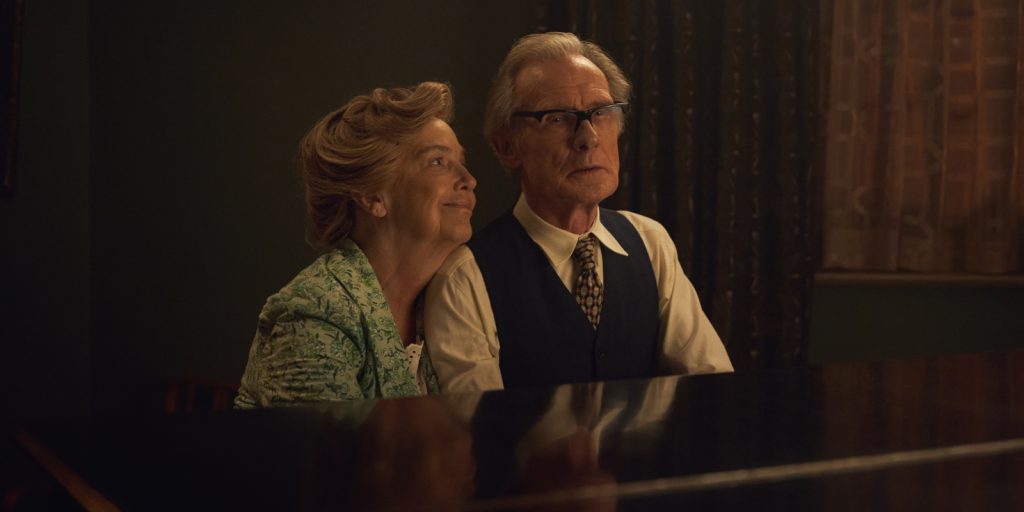
Energy use is another area in which the production achieved some big wins. The shoot for Joy was entirely location based, which meant it would need to be powered by generators. Limmer discussed the best available electric powered alternatives to diesel with gaffer, Theo Milford. They found the best option would be to use generators powered by second-hand electric bus battery cells (the E-Vis Powerskid) in a hybrid setup with the diesel generators.
“We used a hybrid generator system and mostly LED lighting for our main location, which meant that whilst all our power was still produced by HVO, it was used running our fuel generator at peak efficiency and only ran for a couple of hours per day. There was significant reduction to our emission footprint,” says Milford.
The battery was used for four weeks of the shoot, during which the generator was off for 80% of the period saving an estimated 1,223 litres of fuel
Once it was time to wrap, Limmer’s colleague, Maya Wallis helped the crew achieve wins in materials and waste. Through helping the crew inventory props and costumes for reuse and donation, to finding organisations to send deconstructed sets to, Limmer and Wallis made sure as little went to landfill as possible.
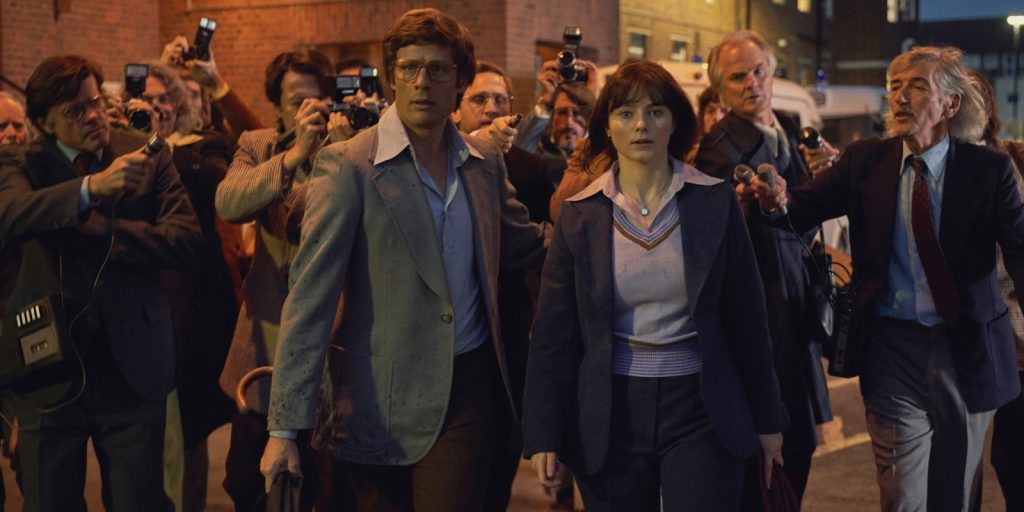
Connecting with the community
Three entire set builds (roughly 15 tonnes of scenery) were sent to Punchdrunk Enrichment, a charity which creates immersive theatre experiences for schools, families and local communities. Costumes were sold to another production which takes place in the same era (Joy is a historical drama taking place over 10 years from 1968 to 1978), and leftover camera consumables were given to a local film school. Carpet and flooring were sent to No Floor No More.
As production manager on Joy, Giovanna Midgely notes, the benefits of a sustainable production went beyond a carbon emissions reduction, and left the crew feeling more engaged with the local community: “It’s really amazing what you can achieve when you have a sustainability team in place. It goes so far beyond recycling and switching to batteries and HVO. We provided food for a women’s refuge and donated our sets to a theatre company. The crew and our producers loved it. And from my perspective as a PM, it didn’t increase my workload or put any undue pressure on the budget.”
The work Limmer and the team did off-screen is a vital part of creating meaningful sustainable change that will help our society reach net zero. Looking at energy, travel, materials, waste and biodiversity can help a production significantly reduce its impact on the environment.
“One of the most positive aspects of the albert process for me was its impact on consciousness raising. Production, crew, cast, facilities and suppliers really did have to think twice about every aspect of their work, in sustainability terms. Individual examples express it powerfully: the chart on carbon emissions that drove our red meat-free catering menu and which we distributed with the call sheet was a revelation to so many people, including myself,” says Amanda Posey, producer, Wildgaze Films.
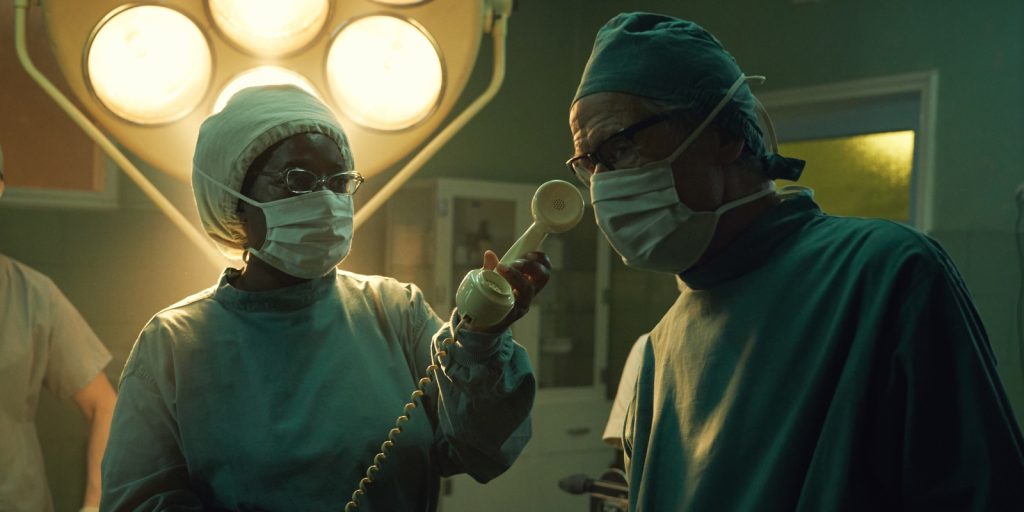









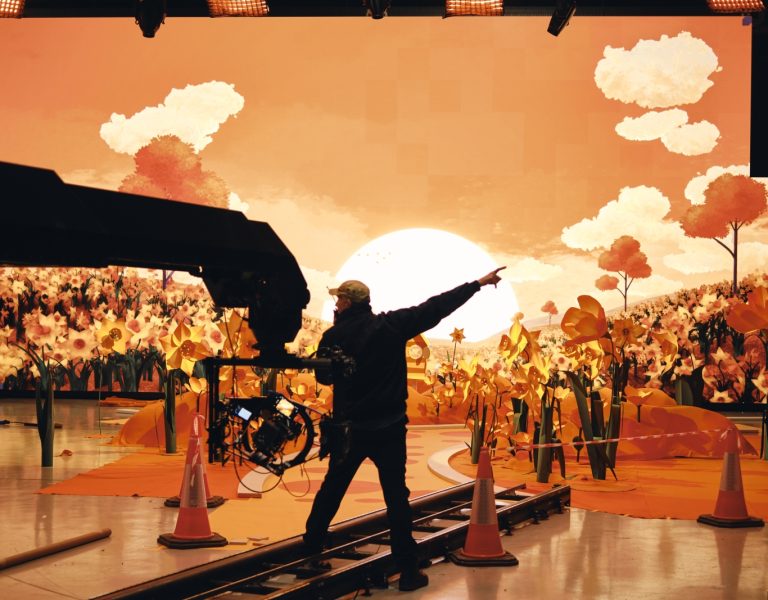
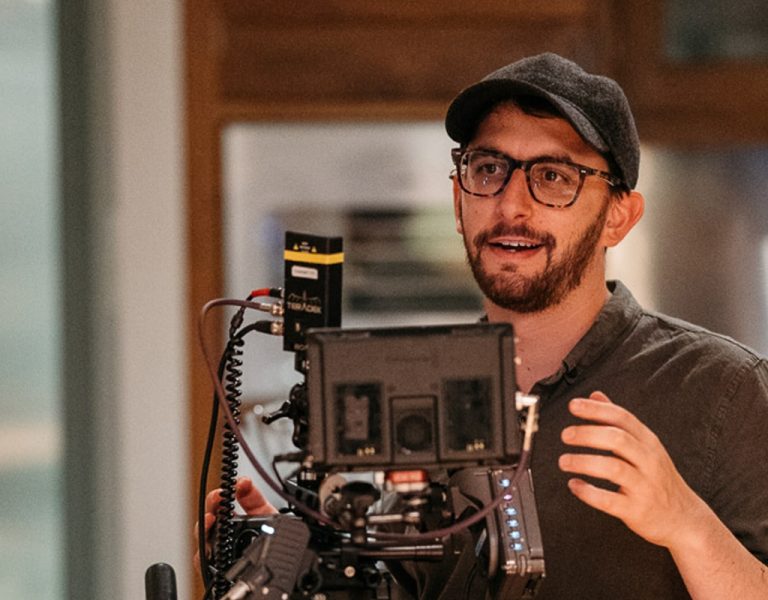
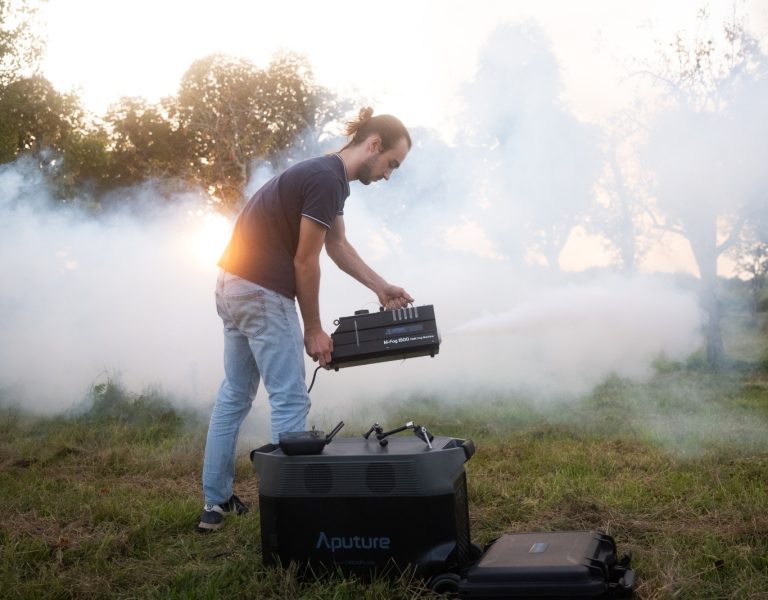
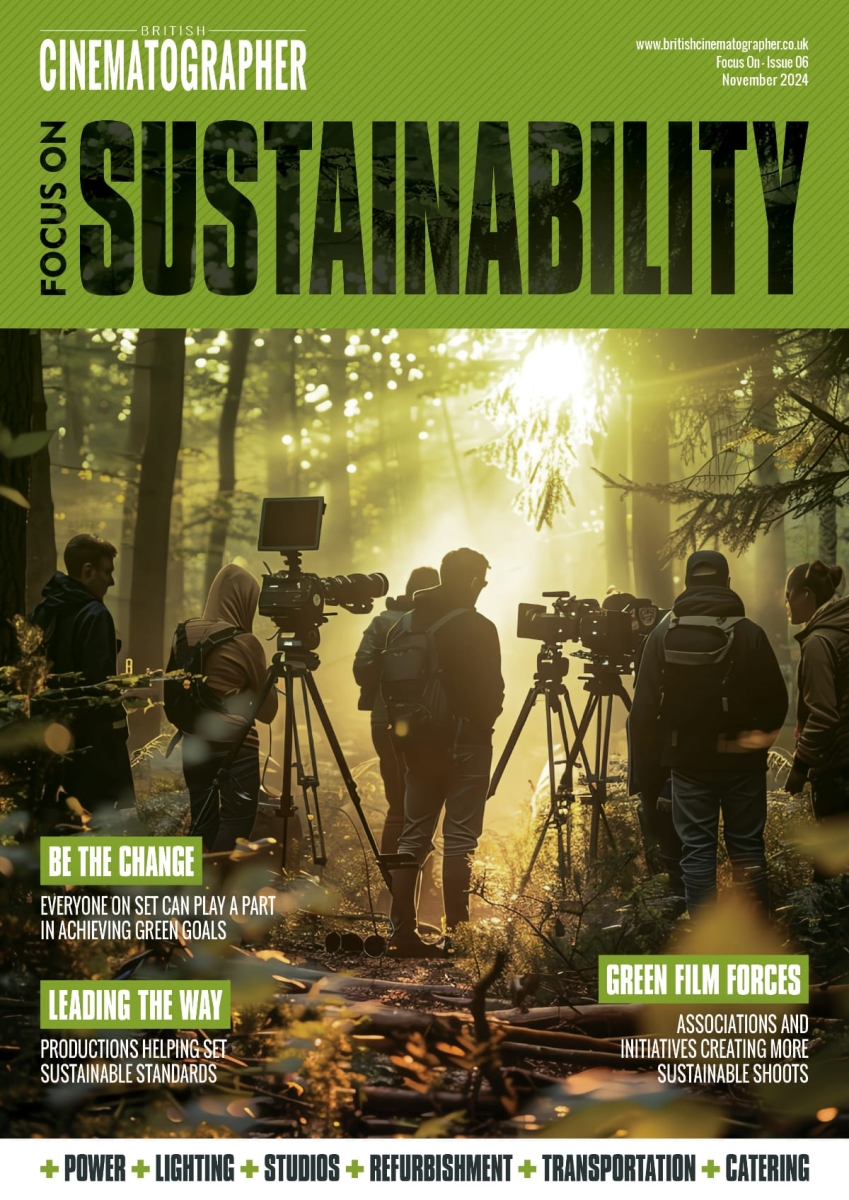
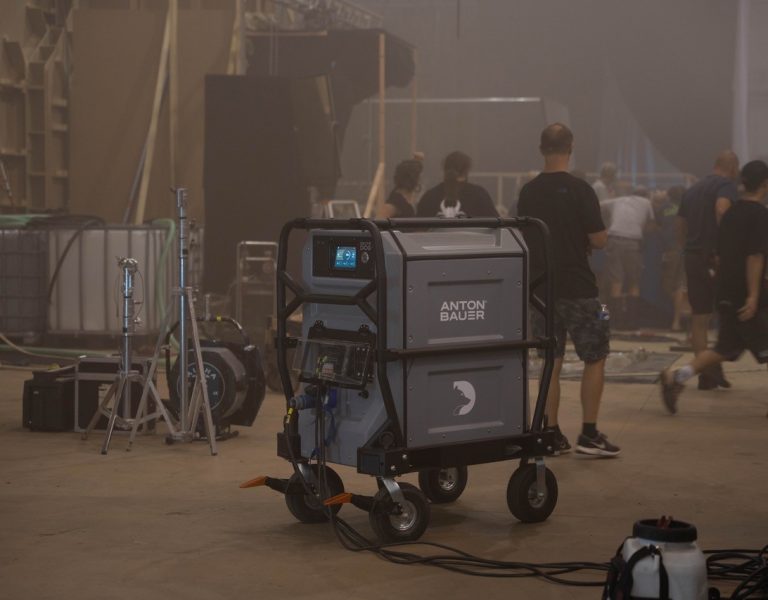
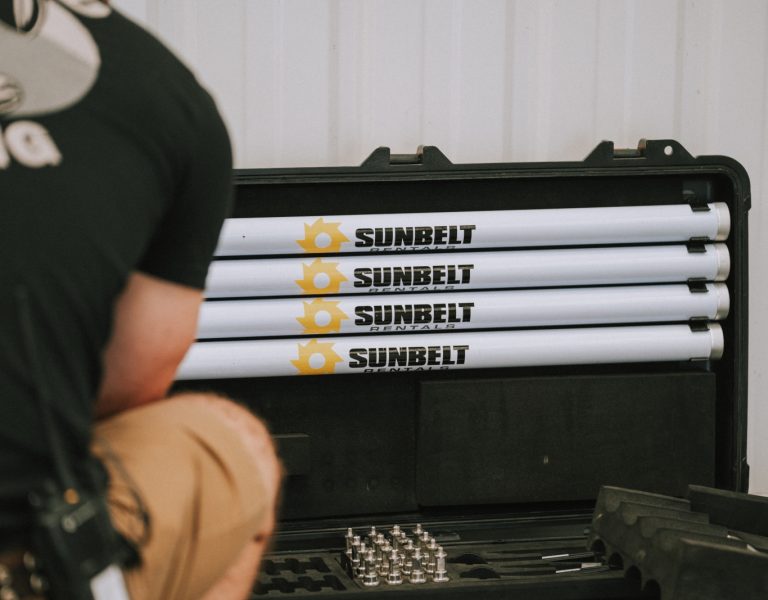
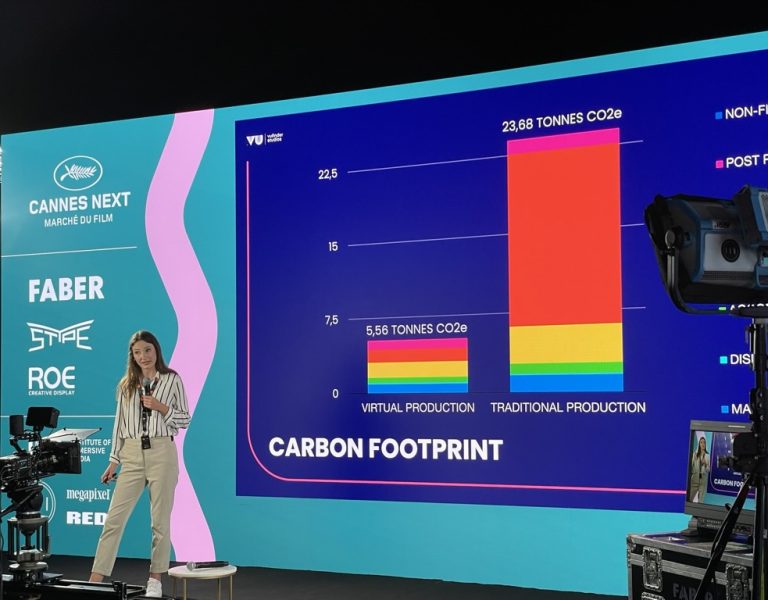
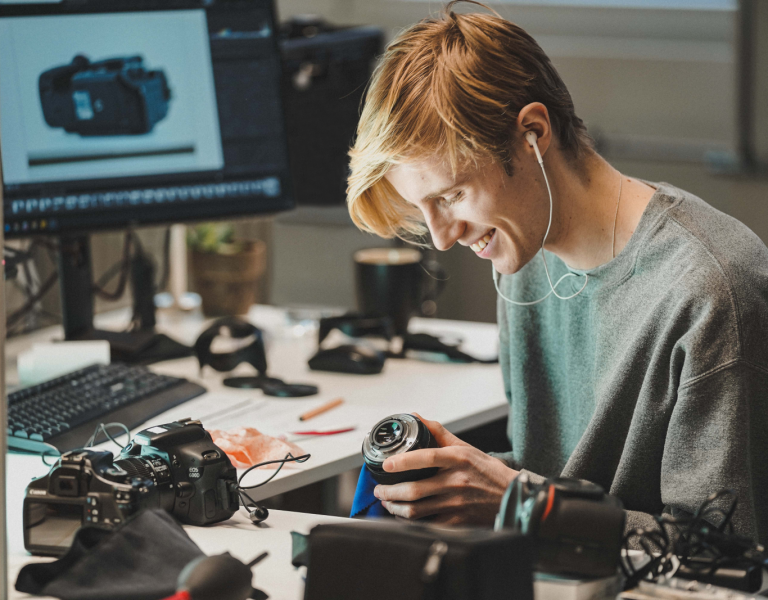



Comment / Amelia Price, chair, sustainability committee, PGGB